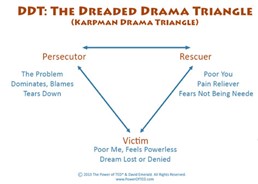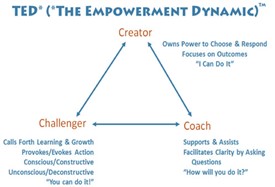
From Student to Researcher (in one Term!) Post 10: What? No Drama … at ALL?
Although possibly a comedy of errors, CURE courses are structured in such a way that there is virtually no drama at all! And why is this you might ask?
By Harold Bull, Dawn Giesbrecht and Sheryl Mills(This blog series is authored by USask denizens Harold Bull, Dawn Giesbrecht and Sheryl Mills) Harold is Assistant Professor Biochemistry, Microbiology & Immunology. Dawn is Laboratory Instructor Anatomy, Physiology and Pharmacology; Biochemistry, Microbiology and Immunology. Sheryl is Associate Director, Academic Programs & Interprofessional Education)
Although possibly a comedy of errors[1] 😉, CURE courses are structured in such a way that there is virtually no drama at all! And why is this you might ask?
It sounds appealing to not have ‘drama’[2].
But what do we mean by ‘drama’? Drama in the academic classroom can look like:
- Disgruntlement:
- About marks received
- About giving marks
- About time spent in class
- About seating arrangements
- About group assignments (who’s in my group, who isn’t in my group, who made these crappy groups, can I just work alone???)
- About due dates, word count, font size, formatting standards, quality of paper, cover sheet, staple placement[3]🙄
- Yada yada yada…[4]
- Whinging about:
- The readings assigned (number of, length of, relevance of)
- The readings being too academic (for a university course…???)
- The readings being not academic enough (for a university course!)
- Group members not pulling their weight
- Lectures running overtime
- Instructor rushing to ‘cover all the content’
- Deadpan ‘humor attempts’ of instructor 😐
- Lack of appreciation
- Lack of recognition, both for work and as an individual
- Whining:
- You didn’t say that THIS was going to be on the test!
- How come we CAN’T have the PowerPoint slides ahead of time?
- Why CAN’T you post the notes online for us?
- I did ALL the work in MY group!
- I wasn’t supposed to have THIS many students in my section…
- How come I don’t have a TA? All the OTHER instructors have a TA…
- I don’t like teaching in the Spring, I don’t like teaching in the Fall, I don’t like teaching in the Winter, heck—I don’t like teaching ANY time at ALL![5]
- I don’t have TIME to teach—my research is TOO important, h%ll, I am too important for this!
Although somewhat cathartic for the authors, we have heard these examples of whinging and whining often…too often…from colleagues, peers and students[6]. You will notice how many of these things are related to the hijinx[7] of ‘hygiene factors’ (see Episode 9).
As you might expect if you have been diligently reading this series, we have a helpful framework to explore drama [let’s be honest, Sheryl has a framework and Harold and Dawn say “Great Idea!”]. It is indeed a ‘game changing’ framework.
The Drama Triangle[8] is a useful way to reflect on patterns of behaviour that can cause great angst. Being on the Drama Triangle can increase stress and decrease productivity and sense of purpose.[9] For a quick audio-visual overview of the drama triangle, you might want to watch this short video. https://conscious.is/video/understanding-the-drama-triangle-vs-presence.
Figures 1 and 2[10] provide another perspective on the Triangle—and getting the heck off it!
Figure 1

Figure 2

In our drama-free CURE, the motivation factors and shared goals actually trump[11] the hygiene-focused drama often occurring in more traditional academic classroom settings. To get off the dreaded Drama Triangle, learners and instructors need a new focus and mindset. The common shared goals of (1) learner-developed team projects and (2) the overall class collegium raise those participating in the course off the Drama Triangle. The common goal, the focus on discovery (versus grades), and instructors moving from the roles of hero/villain to coach/challenger are disrupting to the soul-sucking whinging and whining that often leads to disengagement, disempowerment, and incontinence[12] that occurs when learners and instructors are on the Triangle and feeling like victims.
Stay tuned for more on how to change your course into the highly rewarding, productive, and drama-free CUREall in future posts in this series—and beyond!
Find ALL BLOG POSTS IN THIS SERIES HERE. Find the previous post here. Find Post 11 here.
Podcasts:
[1] You will recall from previous episodes that we have reframed ‘error’ as ‘Surprising New Information For Individuals!’ (SNI-FI)
[2] We can sometimes be addicted to drama without even knowing it. Moving out of drama means we have to change our own narrative. There will be withdrawal symptoms and you may catch yourself telling old stories during the transition. You may be susceptible to ‘falling off the wagon’ during this transition period. It is a good time to practice containment and spend time with other like-minded people like Harold, Dawn and Sheryl 🙂.
[3] These look a lot like hygiene factors. See a previous episode …
[4] Please review Seinfeld clip for demonstration of proper usage of yada yada yada https://youtu.be/O6kRqnfsBEc
[5] Inspired by Dr. Suess (…not the censored ones, we don’t know about those ones).
[6] Note the intentional use of ‘students’ rather than ‘learners’ in this circumstance.
[7] The system is a game where top marks are awarded to the best players, those who have figured out the unstated rules of the game.
[8] https://en.wikipedia.org/wiki/Karpman_drama_triangle
[9] See “How to destroy workplace drama” https://www.inc.com/shawn-murphy/how-to-destroy-workplace-drama.html
[10] Figures 1 and 2 are modified from https://paulclaireaux.com/wp-content/uploads/2020/10/How-to-improve-our-relationships960.jpg
[11] Referring to trumps in card games, not political games.
[12] See meaning #2.

